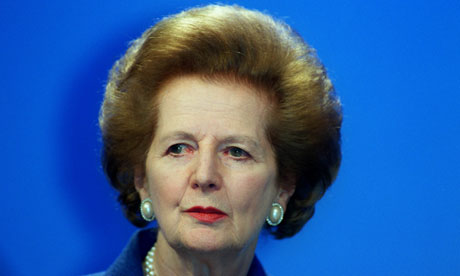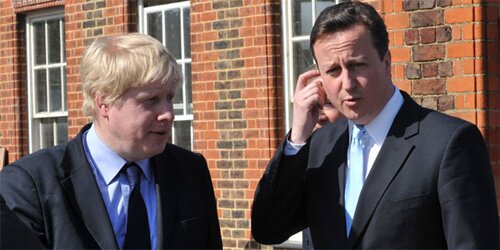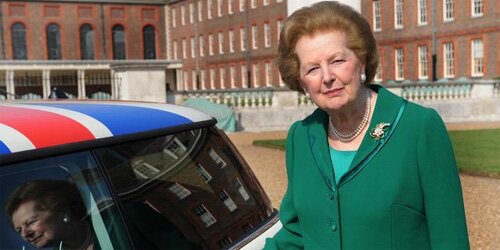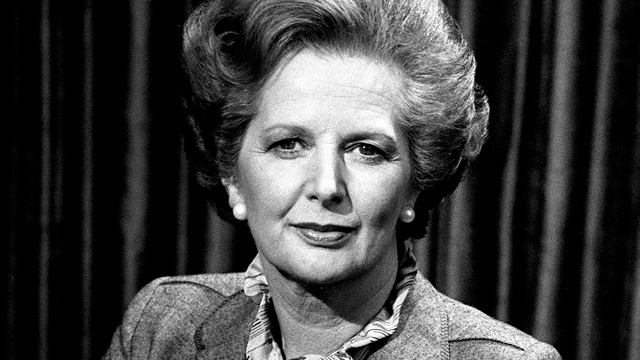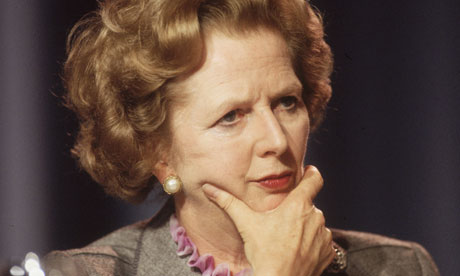How politics always under-estimates support for left-wing views
9:15 am - March 6th 2013
| Tweet | Share on Tumblr |
It is a truism of politics, oft-cited by Jonathan Bernstein, that activists and politicians always feel the opposition are better organised and less principled than themselves.
In that spirit we should perhaps not be surprised at left-wing frustration over the long-vaunted, rarely-seen ‘moral’ (read reactionary) majority that drives so much of our national discourse on social policy issues.
The Washington Post’s Wonkblog has the breakdown on a Berkley working paper which, as far as I can tell, suggests very strongly that on this particular issue the liberals are right.
According to initial findings by Broockman and Skovron, politicians of all parties consistently and significantly over-estimate the ‘conservativeness’ of their constituencies. Liberal politicians underestimate the strength of support for liberal policies, even when that support is 80% or better: and conservatives, by a much larger margin, over-estimate conservative strength in their districts and in the polity at large. Key from the original paper:
[...] nearly half of conservative politicians appear to believe that they represent a district that is more conservative on these issues than is the most conservative district in the entire country.
“These issues” being health-care and gay marriage.

Dylan Matthews conclusion:
The research here is young and, as a general rule, reading too much into a single working paper is foolhardy. It’d be good, for one thing, to perform district-level surveys to confirm these findings. But the data holds against a battery of robustness checks the authors threw at it. The finding on conservative legislators in particular is so large that it’s hard to imagine any subsequent research would completely overturn it. But if the findings hold, they suggest both that epistemic closure on the right is real and affects state-level policymaking, and that there is a systematic bias against liberal policies at the state level.
This is important.
I would be very surprised to discover that the British political class did not share this bizarre feature of thought.
As my last article implied, it is my observation that British politicians routinely underestimate the popularity of liberal policies and massively over-estimate the strength of reactionary opinion on a number of issues.
Many of us have long thought it, and this paper offers a strong case that we now know why it’s so damn hard to get popular, liberal policies through our legislatures. Elected officials are permanently afraid of political retribution from a reactionary ‘majority’ of Edwardian moral vigilantes which simply does not exist.
| Tweet | Share on Tumblr |  |
Chris Naden is a real ale landlord, a Druid and a great fan of Spider Robinson. He is committed to making Britain better by persuasion, education and political action.
· Other posts by Chris Naden
Story Filed Under: Blog ,Our democracy
Sorry, the comment form is closed at this time.
Reader comments
Watching the Commons debate on gay marriage the other week, it was clear that the “anti” Tory backbenchers simply couldn’t believe the polling evidence that a majority of the country supports it, and that this was because they were going by the letters they receive and/or by talking to their consituency party members. Of course in both cases their sample is grotesquely unrepresentative of the populace.
Apologies for the graph being oversized, it wasn’t where I wrote it.
If you look at the US, Obama’s victory should have proved once and for all that the bigoted right doesn’t represent mainstream opinion.
In Britain we have UKIP’s frantic astroturfing and the support of a few newspapers making an awful lot of noise. How sad that Labour has accepted their story that we are a nation of bigots. We are not. The answer to the tories’ ‘are you thinking what we’re thinking?’ was no.
Chris @3:
If you look at the US, Obama’s victory should have proved once and for all that the bigoted right doesn’t represent mainstream opinion.
Not really, to be honest. This data above is not just data about registered voters, or even likely voters. Currently, and for some time, actual voters have tended to be more conservative than the population (mostly because they’ve been older).
Obama’s victory was in part because he was able to get more, and different, voters politically engaged. That does not necessarily signal to the political class that the population are more liberal than the politicians, it just signals that younger people and recent immigrants are more liberal than older white people, which they already knew.
This study, on the other hand, signals that across the board, left as well as right, the political class fear a ‘moral majority’ which probably didn’t even exist when they declared it. And that, in part, helps explain why the great liberal hope of the millennial generation governs to the right of Richard Nixon.
Liberal politicians underestimate the strength of support for liberal policies, even when that support is 80% or better: and conservatives, by a much larger margin, over-estimate conservative strength in their districts and in the polity at large. Key from the original paper
I suspect this is because Conservatives and the rightwing media genuinely think they represent the opinions of the public while the liberal left – at least in the UK – ragard themselves as objectively better than the public.
A typical Tory rag will proclaim itself the Voice of the People and align itself with the more reactionary elements of it’s readership while The Guardian or the New Statesman market themselves at people who also regard the public as inherantly reactionary but think that they, personally, are above such things.
There’s very little attempt to reach out to the liberal public because to do so would undermine the elitism and exclusivity of the liberal-left media. It’s not about changing society its about feeling better than the plebs.
Yes yes. Another reason to believe that consistent rejection at the polls for left-wingery cannot be possibly down to the public having a clear and informed idea of what they want. It must be a) all those evil newspapers that disagree with us (ignoring the vastly more influential and huge BBC…)b) stupid politicians or c) the stupid electorate not knowing what is “good for them”. We must ease our heads more firmly into the sand and concentrate on “proving” that it can’t possibly be our ideology that may be being rejected… Excellent. Job done.
Shatterface:
I certainly think that the post-Profumo media establishment is a relevant causal factor here but I see the mechanism more the way Jonathan Cohn saw it. A US politician might look at Fox and MSNBC, and draw the reasonable but completely inaccurate conclusion that the median line in public opinion is half way between the two positions. If nothing else, that approach has no way to capture the reality that one side is both radical and ideologically extreme, while the other is largely centrist and moderate.
I would say of the UK that a large part of the reason politicians of all stripes fear the invisible Edwardian moralists is that the Murdoch empire, the Daily Fail and the rest make a lot of money from pretending that the nostalgia vigilantes are coming. Modern media is fed by scandal, and nothing allows for more trumpeting scandals than selling the assumption that ‘people’ are shocked, shocked I tell you. If the public discourse is permitted to liberalise as fast as the country does, the press lose scandal-bait quicker than they can invent new melodramas.
Think about LBGTQ rights. The press used to be able to bring down government ministers with accusations of lavender sympathies. The LBG set of targets is gone forever, so the bullseye has been moved on to the T & Q; imagine the tribulations of the toiling hacks of Wapping should it ever become unacceptable to pillory transexuals! There’s hardly any one left for the poor dears to pick on!
Which is why they’re going after the disabled.
Huzzah! My very own troll!
Before you head back to your bridge; you didn’t actually read what I wrote, did you? You certainly don’t seem to have read the WonkBlog article, let alone the working paper. If you had, you’d realise something; this has no particular impact on who gets elected, and its observations apply to lefty politicians as well as right-wingers. The working paper is about how they act after they are elected, and what they believe while elected, and how consistently different that is from what the majority of people they represent actually want.
it is my observation that British politicians routinely underestimate the popularity of liberal policies and massively over-estimate the strength of reactionary opinion on a number of issues
I’m inclined to agree, but I’d add it’s a whole heap more nuanced than that, and is also subject to the vagaries of presentation and events,dear boy,events.
Many people can be socially “conservative” on some issues and socially “liberal” on others. Many issues are not neatly categorised as splitting along liberal/conservative lines, even though that is how the rhetoric pitches them. And of course, people can be, and are inconsistent: that’s just being human. Then of course, there are internal contradictions within conservatism and liberalism, if we are to use those terms: a conservative may be very free-market, but also anti-immigration, which is paradoxical, while a liberal may find problems with religious liberty if it leads to homophobic practices.
Alisdair:
Many people can be socially “conservative” on some issues and socially “liberal” on others. Many issues are not neatly categorised as splitting along liberal/conservative lines, even though that is how the rhetoric pitches them. And of course, people can be, and are inconsistent
These are actually pretty good points. All of them are controlled for in the working paper, though. You should have a read of it ![]()
Broadly speaking, by looking at specific issues they make both partisanship and consistency within a given respondent’s positions irrelevant; any given person who’s on the liberal side of the health-care debate may well, and I suspect many were, be on the conservative side over gay marriage. This analysis is designed to cope well with that, and does. It copes equally well with similar factors at the politician end.
This is an issue which has always baffled me, ordinary people support left-wing liberal policies yet newspapers don’t reflect this, the left-wing contingent is not just ignored but frequently made fun of and made out to be the bad guys -when nothing could be further from the truth.
@ Raging leftie
I suspect it’s because a lot of small-c conservative views are those that you’d come to due to a knee-jerk reaction*, so you’re covering fairly apolitical people as well. Certainly all that “PC/health and safety gone mad” stuff probably appeals more to barely political types than it does to those who could reasonably be called right-wing.
*That’s not to say those views are wrong – it’s possible to come to the right answer for the wrong reasons, or indeed to overthink things and miss the woods for the trees.
One possible explanation is that politicians and the media are under pressure from financial interests to be economically right wing. But that wouldn’t directly explain why they would be socially more right wing. Perhaps they don’t disentangle the social and economic?
@13 Dan
Aha! Now you’ve got something! It’s interesting how people seem to buy into the whole package. There are all sorts of lifestyle and political choices people make that seem to have common tropes and dogmas. It’s an interesting bit of human behaviour and the way it changes is interesting too. Ecology and conservation used to be right-wing and now they’re left-wing, for example. I’m particularly interested in how this habit can be manipulated as it has been in the Tea Partiers.
@ 7 CN,
” If nothing else, that approach has no way to capture the reality that one side is both radical and ideologically extreme, while the other is largely centrist and moderate”.
Agreed. I’ve always found MSNBC ideologically extreme too.
Ecology and conservation used to be right-wing and now they’re left-wing, for example.
Sometimes political allegience looks like a matter of scale rather than Left or Right.
Buy British sounds nationalistic/rightwing while Buy local sounds ecologically sound/woollyminded liberal.
@12. Chaise Guevara: “I suspect it’s because a lot of small-c conservative views are those that you’d come to due to a knee-jerk reaction…”
Don’t savage me too hard whilst I think this through.
UK daily newspapers which are financially successful achieve it because they cover stories that attract readers who attract advertisers. Aside from sport, crime and celebs (more story types?), the most popular stories are ones with a moral angle — smut, “state sponging”, injustice, defence of the inexcusable etc. And lots of those stories are small-c conservative ones when looking through a narrow angle lens.
LC correctly debates many of those stories (or rather, it debates them but not necessarily correctly). The stories are irresistible because they are the spice of life. They encompass gossip with broad political philosophy. Through the wider lens created by debate, the subject/story becomes more colourful or shows more contrast or a bigger picture.
Given that so many lifestyle stories originate from a small-c conservative view point, it is unsurprising that small-l liberals feel overwhelmed. Unsurprising but fallacious.
People really are more generous and liberal than we assume. The vast majority of them. Apart from the nomarks who hate me for being different.
Reactions: Twitter, blogs
-
Rolling Stones | Better Giants
[...] have a piece over at Liberal Conspiracy expanding on my discussion of a recent finding that elected officials routinely and in the case of [...]
Sorry, the comment form is closed at this time.
NEWS ARTICLES ARCHIVE
















